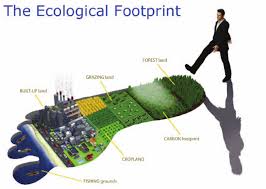What does it mean to be “sustainable” – why does it matter and if it matters that much – why isn’t every one doing it?
This was a question the Gazette put to Jim Feilders, a committed environmentalist and an engineer with a private practice. Here is what Feilders had to say:
 By Jim Feilders
By Jim Feilders
May 1, 2016
BURLINGTON, ON
A general definition of sustainability is the ability to continue a defined behavior indefinitely. This can apply to everything from keeping your body alive to the survival of the universe. But most of us think about it in terms of maintaining our lifestyles in the environment in which we live.
The three most common aspects of sustainability are environmental, economic and social. Some like to include culture as a separate item but it generally is included under the social umbrella.

There was a point when the cod fishery in Newfoundland was a massive industry until the Grand Banks were fished out – it took years to get back the balance that was once in place.
For the environment to be sustainable, the planet has to be able to respond to the human use of resources and pollution created. An example of this gone wrong is over-fishing of the Grand Banks off Newfoundland that resulted in depletion of cod. Wildlife species are becoming extinct by direct killing of animals and destruction of habitat. When the balance of nature is upset, significant changes occur.
We want to know that the planet will be around for future generations. If we don’t maintain a balance between what we do to harm the planet and the capacity of the earth to recover from it, we will find ourselves living on a dying planet. Evidence exists that we are on that path and a global initiative is underway to try to do something about it. Sending too much carbon into the air and oceans is causing global climate change with disastrous impacts. Information is available on the major countries of the world in terms of their biocapacity versus their environmental footprint. It’s just a fancy way of describing whether the environment can absorb all the pollution being produced. Not surprisingly, the US and China are in the red while Canada still has room left over after sucking up all we spew out.

Each of us has an ecological footprint – how big might yours be?
Economic sustainability deals with the ability to support a defined level of economic production indefinitely. The most common expression of this is balanced budgets where countries do not spend more than they bring in. As we are all aware, balanced budgets are not common and the devastating effects on the human population are obvious.
Socially, we can be sustainable when the country functions at a defined level of social well being indefinitely. This includes health care, recreational amenities, schools, good transportation, religious buildings and other institutions in a manner that creates a sense of community.
Most of us agree something should be done to keep us sustainable but how we can contribute on an individual basis is perplexing. Governments, particularly local municipal ones, have the greatest role to play through passing legislation to control services, development and pollution. This makes it easier for people to do their part as they are forced into it. Garbage recycling is a good example. Providing a balanced transportation system is another. But government can only push so hard. We live in a free country and have to let our citizens decide on what kind of place in which to live.
Why we don’t do more as individuals has been a topic of discussion for decades. Recently, a Canadian entrepreneur and author, Tom Rand, with degrees in both engineering and philosophy, discusses environmental sustainability in his book “Waking the Frog”. In essence, we are reluctant to change. With our busy lifestyles, we give little thought to what we can do. It is probably not a mass conspiracy of the oil companies. The affluent especially, see no benefit because maintaining their lifestyle is usually just a matter of spending more money when pollution penalties arise.

The earth needs green fields like this – we need them if we are to survive as human beings on this planet. At this point in time we are losing this battle.
To make our planet sustainable, we can start right within our own communities. We can become involved by exercising age old philosophies of democratic voting, donating financially to worthy causes and directly helping others. When we work together and support each other, the job goes faster and easier. Many forums exist that offer something for everyone to use their specific talents. When stories are heard about dramatic changes such as housing of homeless people in Medicine Hat, Alberta, we are spurred on to do our bit. Burlington is at the tipping point of real change in terms of a sustainable community with the completion of its strategic Plan.
With climate change being such a pressing issue, there are two simple things that we can do right now. Many of us think saving the planet means sacrifices such as taking the bus, turning down the heat and wearing sweaters or yelling at the kids to turn off the lights in unoccupied rooms. But modern technologies for electric and hybrid vehicles and electric heat pumps for heating and cooling our homes are available now that do not require sacrifices.
Despite the apparent higher cost of electricity compared to natural gas and gasoline, these more efficient solutions are actually cheaper on a monthly basis to own and operate.
So get involved where your talents are best put to use and encourage others to do the same. To coin the phrase of BurlingtonGreen: “Together we can make a difference.”















Why is everyone ignoring the obvious? What is the population of the this planet going to be in the not so distant future? A trillion? And no doubt life spans will double in the next century. If you think we’ve got problems now? You ain’t seen anything yet.